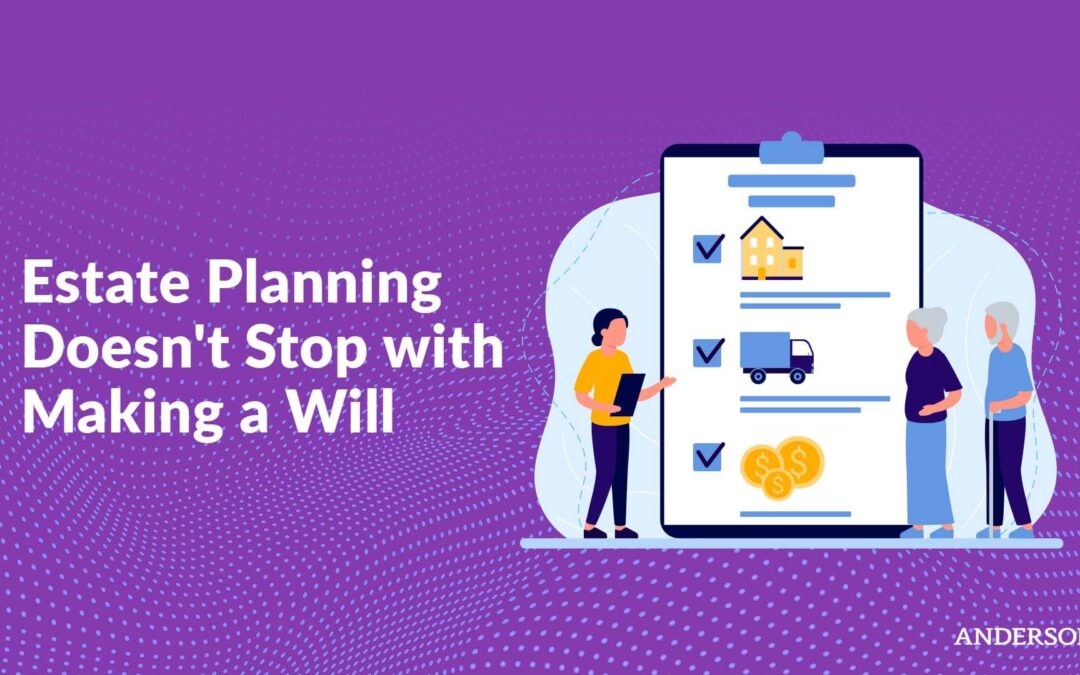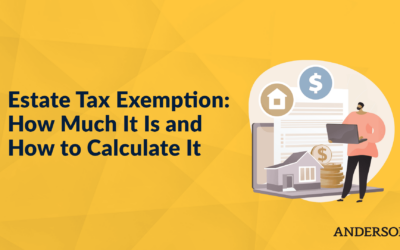A will ensures your final wishes are carried out precisely in the manner you desire. If you die without one, your assets will be distributed according to your state’s laws, with no regard for how you want them handled. With that in mind, it’s clear that drafting a will is essential. However, you shouldn’t stop there.
What Is Estate Planning?
An estate plan is a complete guide that makes your intentions clear both while you’re alive and to those you leave behind. Whether it’s a special necklace you promised to your grandchild or a donation to your favorite charity, an estate plan can help uncomplicate your medical care, as well as your death, for those you love. In addition to a will, it generally includes a trust, a health care power of attorney, and beneficiary or guardianship designations.
Key Takeaways:
- Estate planning offers many benefits, from avoiding probate to creating a legacy, and everyone should have one regardless of age or wealth.
- The process doesn’t have to be overly complicated or expensive, and it’s best to start now.
- The many components of your estate plan beyond a will include a living trust or medical power of attorney.
- Update your estate plan anytime you have a significant life event, from the birth of a child to a move across the country.
Benefits of Estate Planning
An estate plan includes a will, but it should also designate who you want to make important financial and health care decisions on your behalf. These documents offer many benefits, from supporting family, friends, or causes that are important to you to establishing control over who — or who doesn’t — get which assets. The three primary benefits of an estate plan beyond a will include:
Avoiding Probate
Court costs, attorney’s fees, and appraisals can take a big chunk out of your estate. Having a trust in place, in addition to your will, can significantly reduce your family’s probate expenses. It can also help protect your privacy. Your will becomes public record in court, and anyone can see your assets and heirs. A trust limits what information is available to the public.
Tax & Asset Protection Workshop
Learn about Real Estate & Asset Protection at our next
FREE LIVE STREAM
Minimizing Tax Liability
One reason to consider estate planning is to minimize your tax liability. While federal estate taxes typically don’t impact most people, state estate and inheritance taxes are another matter. As of 2022, 12 states and the District of Columbia assess taxes on a deceased person’s estate, while six impose inheritance taxes on the person’s heirs and beneficiaries. These thresholds are usually much less than those for federal taxes — as low as $10,000 in states like Nebraska.
Also, bear in mind that the federal estate tax exemption is expected to drop drastically, from $12.06 million per person to just $5.49 million in 2026. If you own a business you want to bequeath to family members or even a six-figure life insurance policy, your estate could easily reach that taxable figure. One of the best ways to ensure your property passes to your heirs without the government taking a big slice first is to set up an estate plan with a trust, not merely a will.
Protecting Your Children
Another reason to consider an estate plan is if you have minor children who depend on you and your income. If you die without a surviving spouse, who will take care of them? Without an estate plan, the probate court will decide who gets custody of your kids. While this legal guardian/conservator is usually a family member, like a grandparent, that’s not always the case.
If no one steps forward, your child could become a ward of the state and find themselves in foster care. You must identify who will care for your children and how. Always name an alternate guardian, too, just in case. In many cases, a parent’s first choice didn’t work out as planned.
Taking Care of Yourself
Estate planning doesn’t just come in handy once you’re gone. A durable power of attorney and medical proxy are two important legal documents that will protect you and your assets if you’re temporarily or permanently disabled. You’ll appoint a trusted relative or friend to manage your legal, financial, and medical affairs on your behalf.
Without these directives, your loved ones will have to determine who’s in charge and who is legally allowed to take action and communicate your wishes. This situation can get complicated, and in the worst-case scenario, a court-appointed representative or hospital employee who’s unfamiliar with your wishes might make critical decisions for you.
Common Estate Planning Actions
While the whys of estate planning are easy to understand, the how is a bit trickier. Common estate planning actions to arrange your financial affairs and protect heirs include:
Drawing Up a Will
Yes, your will is definitely the first step in your estate plan. This document details how you want your assets to be distributed after you die. You’ll also appoint an executor of your estate and decide who receives which assets. You can stipulate any conditions that must be met before beneficiaries receive their inheritance, such as age limits for minors. If you have dependent children, this form also allows you to appoint their guardians.
Many people believe their spouse will inherit all their assets and investments if they die without a will. That’s a common misconception and isn’t always the case. If you don’t have a written plan, other heirs could take your spouse or children to court, so don’t leave these decisions to a probate judge.
Creating a Revocable Living Trust
A revocable living trust is a solution for a variety of estate planning issues that a will can’t address. You create this trust while you’re alive to help you manage and protect your assets if you become ill, disabled, or simply too old to take care of yourself. Most people write their living trusts so they can be amended or revoked at anytime. While this trust can help you avoid probate, it won’t help you avoid estate taxes.
Choosing Your Medical Power of Attorney
Another essential part of your estate plan is choosing your medical power of attorney (POA). You’ll empower this person to make health care decisions on your behalf if you’re unable to do so for yourself. This form also allows you to dictate specific medical treatments you may or may not want under different circumstances.
A medical power of attorney takes these difficult decisions out of the hands of your loved ones during an emotional and stressful time. Do them a favor by having a POA in place right away. You can always update it as you get older and your feelings change.
Review Your Estate Plan Regularly
You might already understand the importance of updating your will periodically, and we recommend applying the same principle to your estate plan. Any time you experience a life change, such as a divorce or the birth of a grandchild, or you purchase a large asset, such as a second home, your trust and POA should also be addressed.
Remember to tell your beneficiaries where these documents are kept, whether it’s in a safe in your home or a safe deposit box at the bank. This is especially important if you appoint new guardians for your children or make any other changes to the people in your life. We suggest reviewing your estate plan once a year or if one of these events occurs:
- You get married or divorced.
- You have or adopt a child.
- Your partner, child, or other beneficiary dies.
- You buy or sell your home.
- You move to another state with different laws.
- Estate and tax laws change.
- You experience significant changes to your financial situation, such as a substantial raise at work.
Estate planning can be an understandably uncomfortable topic to talk about, but don’t postpone for too long. It’s one of the most important things you can do for your family. You worked hard to build your legacy. Don’t leave your wishes up to chance and the court system. Contact us today to start your estate planning process. Even if you have a will, you’re not fully protected, so don’t hesitate to learn more from our expert advisors.
Free Strategy Session with an Anderson Advisor
Receive a detailed risk assessment to assist in lowering problem areas that could wipe out all of your assets with one wrong move. Speak with an Anderson Professional Advisor to get your FREE Strategy Session.
Limited-Time Offer: ($750 value.)
















